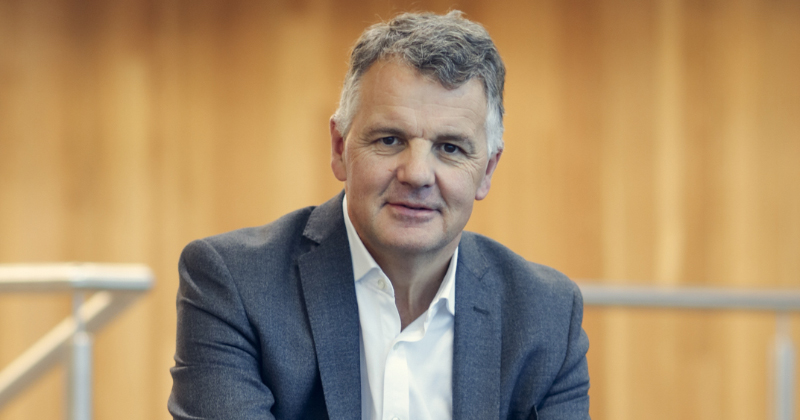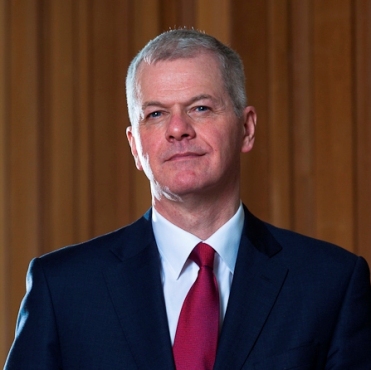A tech industry leader and a former Department for Education (DfE) permanent secretary have been selected to lead Skills England.
Labour’s flagship new skills agency will be chaired by Phil Smith who until last month was chair of semiconductor materials supplier IQE plc and was previously the chair of TechSkills.org, Innovate UK and Cisco, which he also led for over two decades as CEO.
Smith will be joined at the top of Skills England by Sir David Bell, the former Ofsted chief inspector and DfE permanent secretary, as vice chair.
Two job-sharing civil servants will take the reins as joint chief executives of Skills England.
Tessa Griffiths and Sarah Maclean, both currently directors for post-16 skills and strategy at the department, will take on the job and be joined by Greater Manchester Combined Authority’s skills director Gemma Marsh as their deputy CEO.
Labour set up Skills England in shadow form shortly after winning July’s general election. Once fully established, it will work across government to advise ministers on skills and funding policy, and work across government to co-ordinate strategy.
It has already absorbed the functions of the former Unit for Future Skills and published its first report on the country’s skills needs in September.
A bill currently going through parliament will abolish the Institute for Apprenticeships and Technical Education (IfATE) and transfer its functions to the Department for Education.
Ministers have been criticised for establishing Skills England as an executive agency within the DfE, rather than as an independent statutory body.
Speaking in a Lords debate on the bill last week, skills minister Jacqui Smith said: “I assure noble Lords that we have borne in mind the necessity to have strong credibility with employers in choosing who the non-executive chair will be.
“Working with the board, the chair will provide the strong and independent leadership, support and challenge needed for Skills England to deliver its objectives.”
The rest of Skills England’s board have not yet been announced.
In the chair
Phil Smith will replace Richard Pennycook, who has led Skills England as interim chair since July.
Smith has a four-decade career in the technology industry, working at electronics companies such as Phillips Electronics and IBM.

He is a former CEO and chair of software and network solutions company Cisco UK & Ireland, spending over 20 years with the company. He was later chair of Innovate UK for seven years and held chair roles at the Digital Skills Partnership Board, the Tech Partnership, and semiconductor supplier IQE PLC. He is currently chair of fintech brands Streeva and AppyWay.
Smith is also a keen triathlete, having competed twice in the International Triathlon Union world final, representing Great Britain.
He was awarded a CBE in 2019 for services to technology, business and skills.
Bell returns to DfE

David Bell has had an extensive career in education. He started out as a primary school teacher in Glasgow until moving to education roles within English councils in the 1990s. He also was an Ofsted inspector until becoming the chief inspector in 2002 and later permanent secretary in the Department for Education between 2006 and 2012.
He then moved to the University of Reading to become vice-chancellor and is currently vice-chancellor of the University of Sunderland.
Bell led an independent review in to the Education and Skills Funding Agency is 2022, which saw the agency stripped of its policy role to focus on funding.
Before the general election, Bell was commissioned by the Labour party to conduct a review into early years education provision. His findings called for a one-year strategy into early years, an increase to early years pupil premium and more regulation.
Chief executive trio
Tessa Griffiths and Sarah Maclean will jointly serve as CEO, while Gemma Marsh will serve as deputy CEO.
MacLean and Griffiths have been job sharing in government roles for almost two decades.
They’ve worked at the DfE for much of this time – including on A-levels, GCSEs and vocational education – but have also worked as directors of strategy and governance at the Equality and Human Rights Commission.
Their experience also includes three years as deputy directors in the Cabinet Office, working on “intergovernmental relations and devolution capability”.
In the early 2010s they worked on funding new free schools at the Education Funding Agency.
In a DfE blog posted in 2013, they said job sharing allowed them to take on “stretching, difficult roles” that would have been difficult to do part time.
They added: “Having someone at work on the days you are not there gives you a proper work-life balance and the opportunity to do a high-profile job at the same time.”
The pair were awarded CBEs for their work on services to education and the government’s covid response having worked as directors of UK strategy at Test and Trace from June to November 2020, and as “lead policy and delivery” for the DfE’s covid response measures for the following two years.
Skills England’s deputy CEO will be Gemma Marsh, currently the Greater Manchester Combined Authority’s director of education, work and skills.
She has been at the authority, one of the “trailblazers” in English devolution, since 2014.
But she also has experience in central government, after a two-year secondment to Downing Street in 2021, to advise the government on “local delivery” of policy.


















Mmmmn former strategic directors of test and trace.
Very challenging times, but a huge price tag with a terrible outcome and some vast sums being made in profit by a very few.
Lessons learned or round 2?
Underwhelming appointments. Confirmation that SE will just be a version of it’s predecessors.
What a missed opportunity.